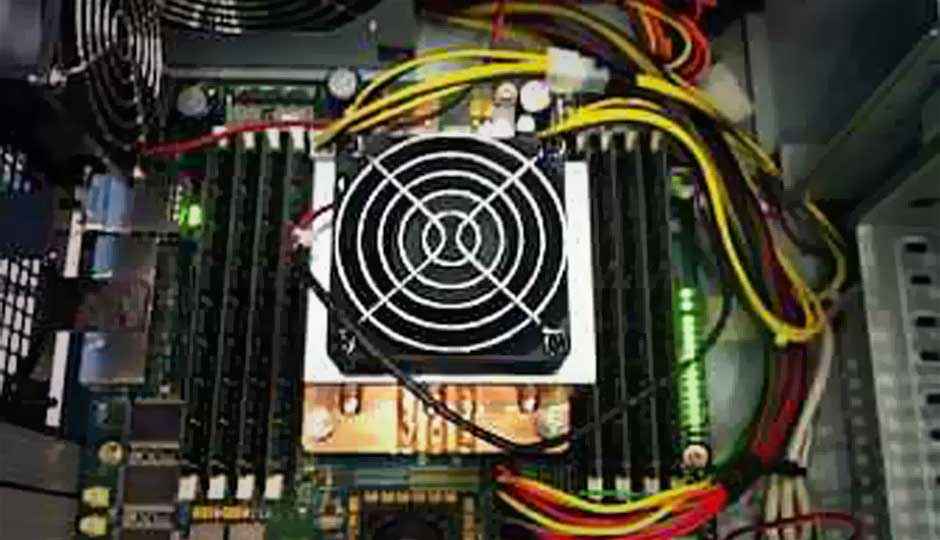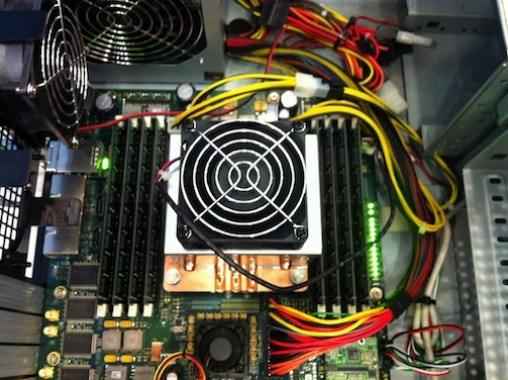Intel working on a 48-core processor, will the app ecosystem keep up?

At the moment, quad-core processor sporting cellphones are not able to fully exploit the majority of the apps. The software is still playing catch-up with the hardware. But according to a report featured in Computerworld (http://goo.gl/cFRpc), Intel Labs in Barcelona is working on a 48-core processor for smartphones and tablets which will probably hit the market in 10 years.
This feat in a mobile chip will surely open a lot of possibilities in terms of computing operations. With that much raw power, according to Intel scientists, a user can encrypt an email, transcode a video, play a game and download a file all at the same time. The basic philosophy is to be able to multi-task at a level that is not currently seen on any mobile device.
According to another research scientist, Tanasu Ramirez, with a 48-core chip if you are watching an HD clip (probably an ultra HD 4k clip by the next decade) different cores can decode different video frames simultaneously. Ramirez also told Computerworld that different cores could run in parallel on different projects and use comparitively lesser energy. Also the chip can divide the energy and distribute it between different applications.
“I think the desire to move to more natural interfaces to make the interaction much more human-like is really going to drive the computational requirements,” said Justin Rattner. “Having large numbers of cores to generate very high performance levels is the most energy efficient way to deliver those performance levels.” He even claimed that the 48-core chip would come out sooner, within 10 years.
You can read more on the report at Computerworld.
A prototype under test at Intel Labs
Our Take
While we feel it is certainly a great initiative by Intel and will definitely change the face of mobile computing as we know it today, it still brings up a lot of questions. First obvious question still remains – will apps be able to make use of those many cores 10 years down the line? As of now, there are very few resource-heavy apps which make use of all the cores of even a quad-core phone. Yes you have heavy games and editing apps which make use of parallel processing, but a small minority. We expect mobile devices to be more powerful in 10 years, but it will really make sense if we have a boatload of apps that will exploit that many cores. Else it will just be overkill like those quad-core phones/tablets were when they had started coming in the market.
Secondly, from a usability perspective, will we be really doing multi-tasking at such a level that will require a 48-core chip? Right now, we are not even able to fully exploit a hex-core processor, because of the efficiency of the architecture. And here we’re talking about using a hex-core processor on a desktop. Considering Intel’s 48-core chip is targeted at mobile devices, is Intel implying that we will be doing more processing on a mobile device than we do on a high end desktop today? Seems a bit far-fetched to us. And if mobile CPUs will sport 48 cores, what will happen to desktop processors? Baffling doesn’t even come close to experiencing our sentiment.
Thirdly, in 10 years time, cloud computing will have become more advanced. What can be done on phones or desktops today can easily be done on the cloud in the future. We have all heard about outsourcing the processing prowess and using your device just as a client to the server in the cloud. With a 48-core chip, surely the clients will be much powerful, but do you need that much power on your device when it can be off-loaded to a cloud server? We wonder.
We are in no way implying that we will not need more processing power in the future. That would be really foolish. But one also has to look at advances in related fields to justify that kind of power usage on your smartphone or tablet.
Right now, can you even come up with a list of 48 applications that you’d want to run simultaneously on your phone? Suggest some in the comments.


